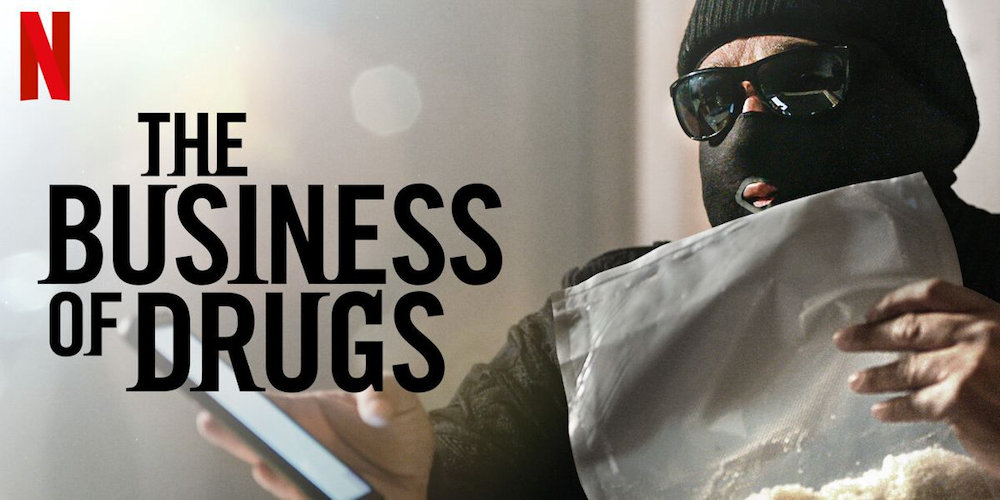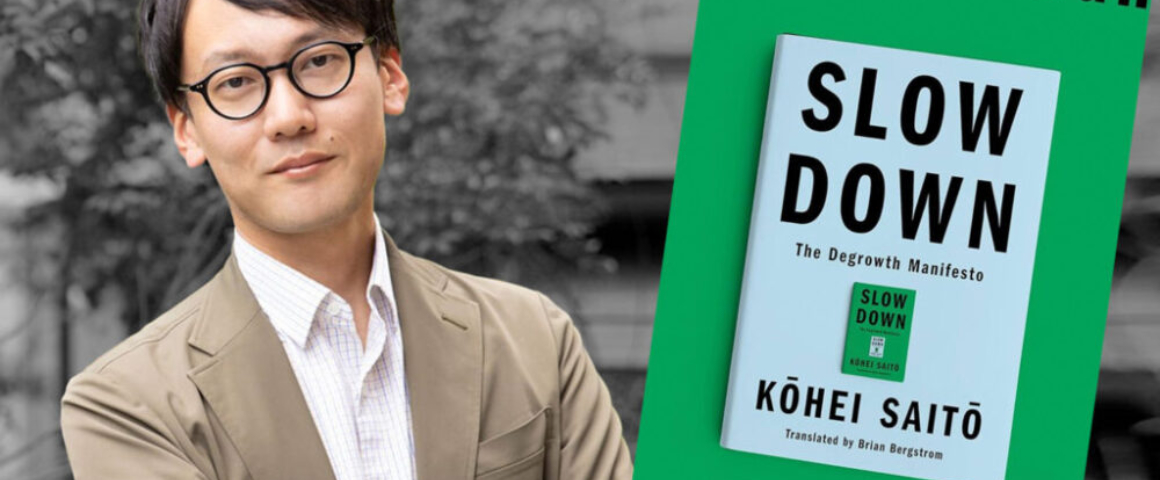[buzzsprout episode=’5303191′ player=’true’]
The Business of Drugs
Netflix series hosted by Amarylis Fox
Directed by Erik Osterholm, Jesse Sweet, Nick Carew, Eric Strauss
Much of the world is facing a crisis around the use and abuse of various sorts of substances, with different countries taking different approaches to the issue. The United States has generally focused on prohibition, enforcement and corrections; the Netherlands and Portugal have tried legalization and drug therapies for users. Still, headlines worldwide indicate many deaths each day from overdoses.
The Business of Drugs, a six-part documentary series on Netflix, features former CIA analyst Amarylis Fox exploring issues around six different types of illegal drugs. For leftist critics of drug prohibition, this series provides excellent examples of how capitalism is a major cause of the drug crisis – both in terms of why people use drugs in the first place and the fact that the US, in particular, currently lacks a planned or coherent response to this crisis. Perhaps the most politically salient episodes are the ones on cannabis and opioids. Fox herself ends the series with a clear critique of “unregulated capitalism.”
Across Canada possession of cannabis for personal use has been legalized. Yet what currently exists in the US is a patchwork of legalization or prohibition, applied on a jigsaw-puzzle of state law with no coherent country-wide strategy. Unlike countries like Canada, individual US states write criminal law for their own territorial jurisdiction while, at the same time, the federal government maintains laws applying to interstate trade and international borders. This makes an almost impossible mess, creating real problems for those trying to earn a legitimate living growing and distributing legal cannabis.
Although cannabis has become legal in some US state jurisdictions, many people continue to serve life prison sentences on federal drug charges, particularly if their charges involve interstate or international distribution. This situation often reflects racial and class divisions – while drug enforcement, arrests and prosecution disproportionately target black and brown people, large corporations have predominantly been biggest benefactors from investment in legal cannabis production and distribution. So, racialized and poor working class people serve custodial sentences while corporations earn profits selling the exact same substance. The series covers this point well and asks some difficult questions about the intersection of race and class when it comes to drugs.
The episode on cannabis showed how major corporations are gaining the most from drug legalization. In California, acquiring a license for a legal cannabis operation requires the applicant to have a minimum of $1 million in assets. This is on top of paying for local and state license fees. Since cannabis is still federally illegal, it is almost impossible to find a bank or credit provider to loan money. Large corporations can enter the cannabis industry and earn billions of dollars, but small producers are priced and regulated out of the legal market.
The episode about opioid use and abuse is clearly an anti-capitalist cautionary tale. The documentary places the blame for the modern opioid epidemic on the doorstep of “Big Pharma” corporations like Purdue, which began marketing OxyContin in 1996. As one opioid user remarks in the series, “the best drug dealer I’ve ever had was my pharmacist.”
The death toll from OxyContin is a direct result of corporate greed – since 1996, this drug has earned billions of dollars of profit for Purdue. Multiple lawsuits have established that the drug was promoted as a response to a legitimate need to address chronic physical pain without also being addictive. The corporation clearly underplayed the addictive nature of Oxy – despite its own data that clearly indicated this aspect of the drug. Pharmaceutical sales representatives were hired based on their backgrounds in sales, not in science, and were given bonuses for convincing doctors to prescribe the medication. They told physicians that patients who desired higher dosages were responding to “pseudo-addiction,” willfully ignoring the hallmarks of traditionally-understood behaviour.
The Business of Drugs also shows that over time, many opioid patients routinely required more pills to meet their growing addiction. In fact, many who were paying hundreds of dollars to buy their prescription came to realize that an equivalent of street-sourced heroin would cost around one-third that amount. In terms of the effects on the body, OxyContin is almost indistinguishable from heroin.
One significant effect of Oxy was that it directly facilitated a transition of many otherwise law-abiding people from legal pharmaceuticals to illegal substance use. Predominant North American culture promotes the image of drug users as people using dirty needles in the street. This documentary replaces that with the depiction of wealthy professionals presenting a prescription to their neighbourhood pharmacy.
The series looks at people who illegally deal drugs in more humane and less judgmental ways, and it shows the “War on Drugs” to be an utter disaster on many levels. Prohibition is clearly shown as being based on a moralistic framework that views drug use as immoral and users as bad people. Punitive approaches are also shown as ineffective in stopping drug use. At the same time, it is very problematic that the documentaries often use the expression “black market” – something that warrants criticism.
While The Business of Drugs criticizes “unregulated capitalism,” it also features an intelligent critique of what happens when a public health crisis is affected by the problems inherent in capitalism. Regulation of corporate entities does not mean that the profit motive goes away, so we may likely – and unfortunately – encounter another “Purdue” situation. Additionally, by stigmatizing users, racism and other forms of oppression in capitalist society result in the selective application of criminal sanctions. This reviewer would like to see future series explore alcohol and tobacco, which typically produce much greater damage in terms of health and lives lost as a result of their use.
[hr gap=”10″]
Support socialist media!
If you found this article useful, please consider donating to People’s Voice.
We are 100% reader-supported, with no corporate or government funding.




